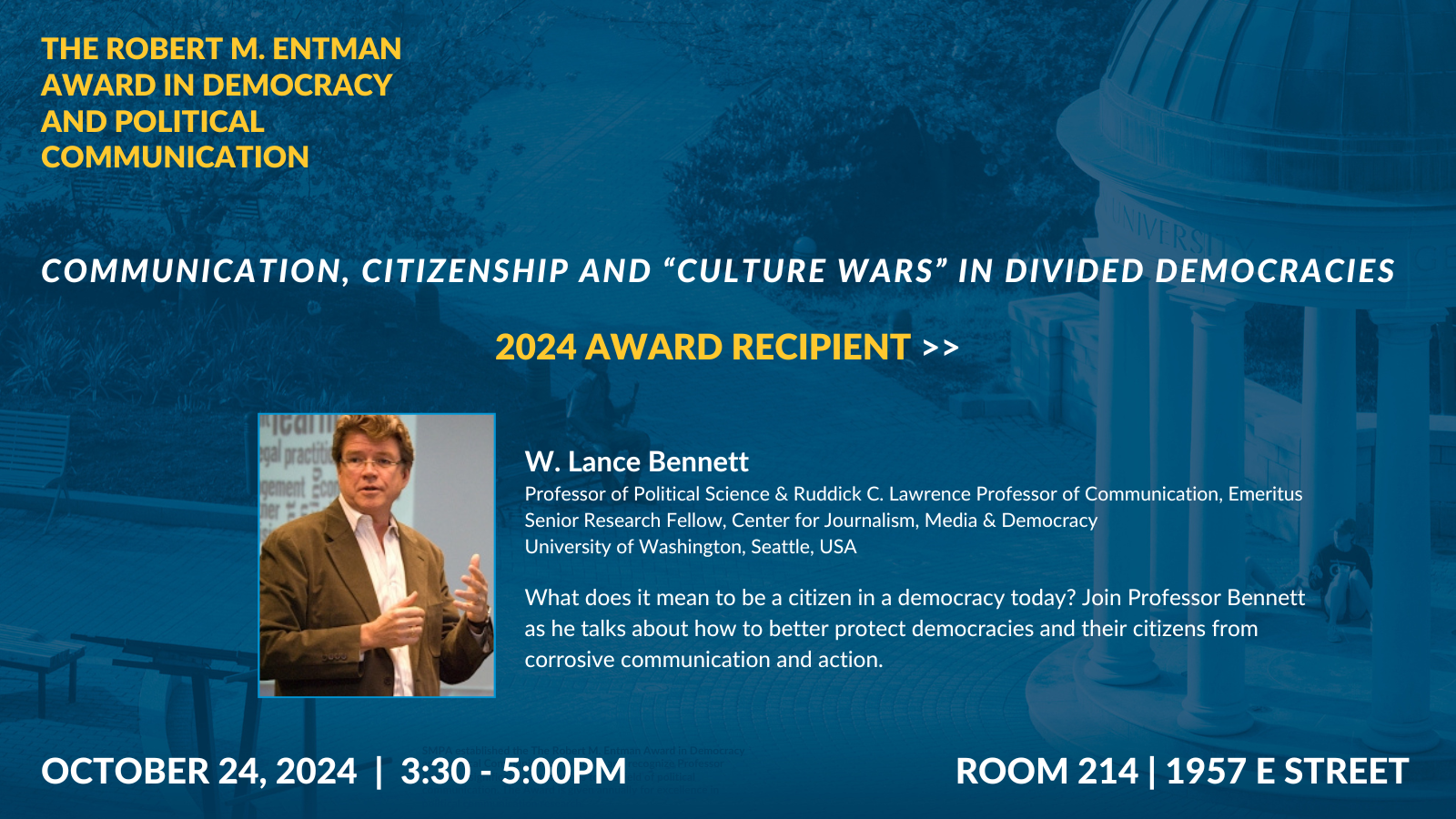Communication, Citizenship and “Culture Wars” in Divided Democracies
2024 Robert Entman AwardsWhat does it mean to be a citizen in a democracy today? Textbooks and classes on citizenship tend to paint pictures of nations unified around fairly well-defined citizen virtues such as tolerance for others, making informed decisions, and trusting institutions to settle our differences. When citizens are discriminated against in textbook liberal democracies, they have means to gain recognition such as social movements and legal actions. However, many democracies today are locked in so-called “culture wars” waged largely by the radical right. These attacks on political correctness and anything “woke” are aimed at women, a growing list of minorities, and a rainbow of social and economic justice causes. Those attacks can take a variety of forms, from everyday occurrences such as hate crimes, to sweeping high court rulings justifying selective removals of rights and protections.
Proponents of these restrictive visions of citizenship and society challenge the basic communication norms of liberal democracy: civility, mutual recognition, reasoned discussion of differences, and tolerance for political outcomes. This talk explores how illiberal communication logics work, and how they are embodied by citizenship styles that promote intolerance, along with inequality of power and wealth, and endanger the rights of others. Illiberal communication often baffles those who support more "liberal democratic" communication and citizen styles because it seems so often hateful, derogatory, and “illogical.” Indeed, most "libebrals" are baffled and frightened by illiberal challengers who are dismissive of basic, empirically verifiable realities such as climate change, health science, or election outcomes. Yet, those illiberal civic communication styles often translate into political realities when illiberal publics gain power through elections. Their policy agendas include putting their one God into classrooms and public spaces, restricting voting rights, criminalizing abortion, banning books, severely policing various minorities, and canceling subjects taught in schools, among many other common agenda items.
The combined impact of these challenges to liberalism by both citizens and the institutions they empower are also struggles over: Who are the true citizens? Who belongs in society? Who does not? and Who do the institutions really protect and represent? Of course, this war on liberal values has various rationales such as avoiding replacement of a racially and culturally superior Christian nation by less perfect immigrants and minorities. This guise of White Christian Nationalism serves as both a broad political movement identity, and as a policy agenda. That agenda goes well beyond social reengineering, and into oligarchical economic and geopolitical alliances as well.
Together we will discuss what can be done to better protect democracies and their citizens from such corrosive communication and action?
2024 Robert Entman Award Winner:
W. Lance Bennett
Professor of Political Science & Ruddick C. Lawrence Professor of Communication, Emeritus
Senior Research Fellow, Center for Journalism, Media & Democracy
University of Washington, Seattle, USA
When: October 24, 3:30-5pm
Where: 1957 E Street; Room 214


